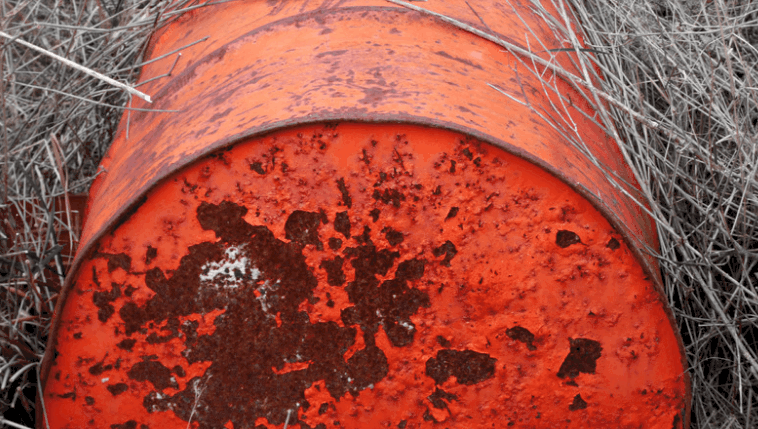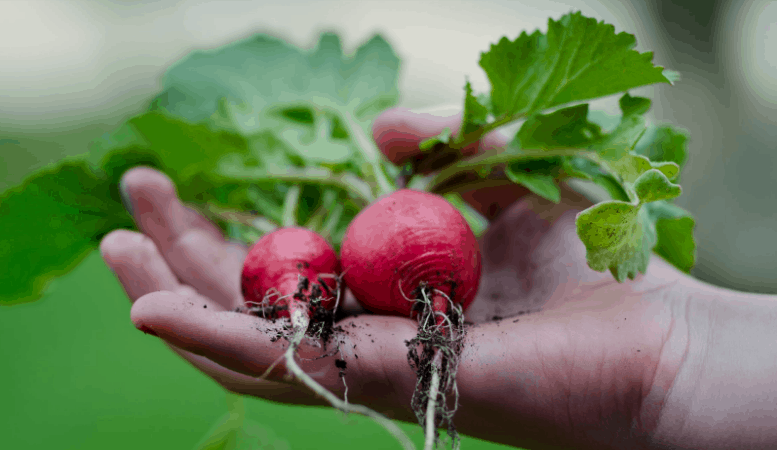Reading through the Brownstoner.com forum , there are numerous stories of New York residents who have faced the challenge of lead contamination. The narrative isn’t unique for the forum users. Virtually all homeowners in New York have been hit by the reality of lead contamination. Many homeowners were shocked to learn that they require soil remediation services before their soil can be considered safe.
However, the shock is easily replaced by a sense of gratitude when they learn about the harmful effects of lead poisoning. Some other families who discovered late would have toyed with lead accumulation for long periods and this poses a grave danger to their health. A reliable New York soil remediation company would effectively handle your soil contamination challenges once you discover what you are up against.
Lead contamination presents a conundrum for gardeners
Gardening is one of the most popular recreational activities among residents of Brooklyn, New York. If you take a walk around the residential areas, you’d easily fall in love with the beautiful gardens that surround the houses. Some homeowners opt to adorn these spaces with the best of horticulture. Some others plant a variety of vegetables including tomatoes, lettuce, snap peas, and other edibles. And some more gardens are a combination of both beautiful flowers and food crops.
There is hardly a better feeling than picking your food directly from your garden. You’ll enjoy the unique taste of fresh foods and you are safe in the knowledge that your vegetable is free of any harmful chemical. However, discoveries have shown that this sense of safety may be under threat. The soil in many urban and suburban centers is heavily contaminated with lead and other heavy metals. Lead in the soil could leach into the food crops grown in home gardens, putting the consumers at risk of lead poisoning. Different crops absorb varying amounts of lead but root crops and leafy vegetables appear to the most affected.
The Center for Disease Control (CDC) categorically states that the presence of even minute amount of lead in children poses a danger to their well-being. Worse still, once we are exposed to lead, the resultant effects cannot be undone. If you are among those that have keyed into the local-food movement, you may just need the services of a Brooklyn soil remediation professional before filling your garden with vegetables and other food crops.
What is soil remediation?
Simply put, soil remediation is a process by which contaminated soil is made safe again. Soil remediation is a subset of environmental remediation. It involves the use of various proven techniques to remove the harmful substances in the soil or convert them into safe or less harmful products. Soil contaminants may range from heavy metals, oil or other substances that make the soil unsafe for agricultural or other purposes.
Soil remediation isn’t exactly difficult but it involves a lot of hard work. There are numerous methods used in soil remediation and some are more effective than others. That is the more reason you need to hire a trusted Brooklyn soil remediation company for your Brooklyn homes. A lot of digging and lugging is involved and the results achieved may vary depending on the methods used. We employ a tested and proven method to reduce the amount of lead and other contaminants in your soil to safe limits.
How much lead is toxic in soil?
Scientists are still working on figuring out the exact concentration at which lead starts to pose a hazard to human health. This is echoed in the words of Mary Jean Brown, a senior officer at the lead poisoning prevention unit in the Healthy Housing Branch of the CDC. Even in the absence of a threshold, scientists know for sure that the higher the concentration, the higher the health risk. However, no one has a definite answer to the question ‘how much lead is toxic’.
Although it is not deemed compulsory, the Environmental Protection Agency (EPA) as well as the Department of Housing and Urban Development advise homeowners to remediate soils containing more than 400 p.p.m of lead in children’s play areas. For other areas, remediation is recommended when the level of lead exceeds 1200 p.p.m. However, there are some studies that have proven that even this limit cannot be trusted. A lead level greater than 100 p.p.m is considered hazardous in Minneapolis.
Outside America, some countries consider any soil with a lead level greater than 40 p.p.m dangerous. To ensure your safety and that of your family, our New York soil remediation services would help you bring the lead level in your soil down to safe levels. On the average, soils that have not been exposed to lead deposits contain about 10 p.p.m of lead. This is the target of our soil remediation services. And we have perfected our techniques to ensure the target is achieved on a consistent basis.
How did we get here?
The challenge of soil contamination in New York is not limited to residential areas and it didn’t just surface today. A report from Newyorkupstate.com alleges that officials discovered evidence of lead contamination in certain areas as far back as 1987. Decisive action was taken recently when about 100 property owners were warned that their soil may contain harmful concentrations of arsenic and lead.
The cause of the widespread lead contamination is traceable to the extensive use of lead paints in the 20th century. A ban was not placed on lead paint until 1978 and most of the houses in New York built before that time were painted with lead. That your house is new doesn’t mean you are not at risk. If a building was demolished on the site before the new house was erected, there is a high chance your soil is contaminated.
It is imperative to note that lead-based paints are not solely responsible for today’s widespread contamination problem. Plumbing materials containing lead as well as some pesticides that are lead-based were also rife in the construction and agricultural markets. The presence of lead in pesticides particularly puts more areas at risk. A high concentration of lead has been found in sites that were formerly used as farmlands and areas close to orchards.
Automotive parts and lead batteries are another known source of lead contamination. Sadly, these contaminants are still in use in the automotive industry. This puts the soil around busy roadways at risk. The diverse sources of lead contamination mean it’s better to assume your soil is contaminated until it is proven otherwise.
You cannot know if you do not test your soil
As mentioned earlier, virtually every area in New York city could use some form of soil remediation service. However, you’ll need to test your soil to know the extent of contamination. There are numerous companies that offer soil testing for a fee. In some counties, the local public health departments might help you test your soil for free. Most soil remediation service companies also carry out soil testing. By hiring a New York soil remediation company for the soil test, you’ll be killing two birds with a stone.
The test is easy to carry out and the results let you know whether you are at risk of lead contamination or you have nothing to worry about. Asides lead contamination, the test also reveals the relative amounts of other heavy metals in your soil. If you wish, you may also test for other soil attributes like pH, moisture content. These tests are useful for passionate gardeners as it gives an idea of the kind of plants that would thrive on the soil. A comprehensive soil remediation service takes care of all forms of contamination while rendering your soil fit for gardening purposes.
The health effects of lead poisoning
Exposure to any heavy metal is dangerous. However, lead appears to be one of the most dangerous heavy metals around. Or perhaps, it’s just the most popular. According to the CDC, the route of exposure has little effect on the toxicity of lead. It doesn’t matter if you’re exposed to lead from tilling the garden, or from the proceeds of your harvest. You could still come down with devastating health effects when the level of exposure becomes unbearable.
Post exposure, lead is absorbed and stored in the blood, tissues, and bones. The human body cannot metabolize lead. The absorbed metal stays in the body forever! Worse still, subsequent exposure to lead leads to accumulation, leading to even more toxic levels.
The stored lead gradually leaches into the blood and other organs, serving as a source of continuous internal exposure. This becomes worse as we age due to the faster rate of bone demineralization. An individual starts to feel the devastating health effects of lead exposure once the accumulated amount reaches unbearable levels. This threshold may vary from individual to individual but it is particularly low in children.
Health effects of lead poisoning in children
A publication from the CDC highlights the following as the potentially harmful effects of lead in children:
- Impaired mental and physical development
- Elevated hearing threshold
- Impaired absorption of vitamin D which may lead to bone and teeth defects
- Deficits in motor skills
Health effects of lead poisoning in adults
According to the CDC, adults who have been exposed to toxic amounts of lead over time may have the following symptoms:
- Abdominal pain
- Depression
- Constipation
- Forgetfulness
- Irritability
- Nausea and general malaise
Prolonged exposure to toxic amounts may put such individuals at risk of high blood pressure, organ damage (especially the heart and the kidneys), fertility problems, etc. Lead is also thought to cause certain kinds of cancers.
Lead has no respect for socioeconomic boundaries
As long as you live in an urban center, your soil is at risk of lead contamination. It doesn’t matter whether your area is upscale or you live close to the slums. The lead contamination problem is one that transcends socioeconomic divides. As long as your settlement has a structure that was built before 1978, you should absolutely check your soil to know your status. Even the White House’s kitchen garden reportedly harbors around 93 p.p.m of lead. This is way more than expected for non-contaminated soil but below levels considered hazardous for children or adults.
Natural measures to reduce the amount of lead in the White House garden are currently being explored. But this approach is only acceptable because of the relatively low amount. You cannot trust the natural measures when your soil test reveals high amounts of lead. Thus, the need to take drastic steps that would deliver immediate results. A trusted New York soil remediation service professional is the drastic step your soil needs if the tests reveal a high level of contamination.
This aim of this piece is not to evoke fears about gardening. Rather, it seeks to create more awareness about the potentially harmful effects of lead poisoning. Once you recognize the strength of the monster you are facing, you’re better able to make an informed decision about protecting yourself and your loved ones.
If you have not done so, you should test your soil to know the amount of lead present and hire a trusted Brooklyn soil remediation company if you need to. You should also know that opting to stop growing food crops in your garden is not a smart alternative. There is no guarantee that what you’re buying at your local grocery store is harvested from an uncontaminated soil. The best way to continually ensure your safety is to remediate your soil and enjoy the lead-free produce that comes from your gardening efforts.


